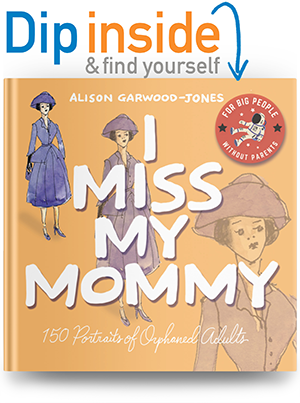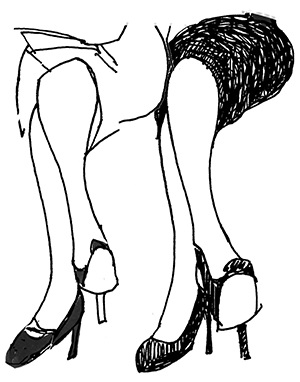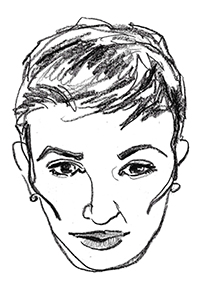Hall of Fame
September 14, 2010
Here are just a few of the writers who amaze me.
Gay Talese
“New York is a city of things unnoticed. It is a city with cats sleeping under parked cars, two stone armadillos crawling up St. Patrick’s Cathedral, and thousands of ants creeping on top of the Empire State Building. The ants probably were carried up there by wind or birds, but nobody is sure; nobody in New York knows any more about the ants than they do about the panhandler who takes taxis to the Bowery, or the dapper man who picks trash out of Sixth Avenue trash cans; or the medium in the West Seventies who claims, ‘I’m clairvoyant, clairaudient, and clairsensuous.’ New York is a city for eccentrics and a center for odd bits of information. New Yorkers blink twenty-eight times a minute, but forty when tense. Most popcorn chewers at Yankee Stadium stop chewing momentarily just before the pitch. Gum chewers at Macy’s escalators stop chewing momentarily just before they get off — to concentrate on the last step. Coins, paper clips, ballpoint pens, and little girls’ pocketbooks are found by workmen when they clean the sea lions’ pool at the Bronx Zoo.”
Gay Talese, “New York is a City of Things Unnoticed,” (1961), The Gay Talese Reader, Portraits and Encounters (New York: Walker & Co., 2003)
Rachel Carson
“The edge of the sea is a strange and beautiful place. All through the long history of Earth it has been an area of unrest where waves have broken heavily against the land, where the tides have pressed forward over the continents, receded, and then returned. For no two successive days is the shore line precisely the same. Not only do the tides advance and retreat in their eternal rhythms, but the level of the sea itself is never at rest. It rises or falls as the glaciers melt or grow, as the floor of the deep ocean basins shifts under its increasing load of sediments, or as the earth’s crust along the continental margins warps up or down in adjustment to strain and tension. Today a little more land may belong to the sea, tomorrow a little less. Always the edge of the sea remains an elusive and indefinable boundary.”
Excerpt from The Edge of the Sea (Boston: Houghton Mifflin Company, 1955)
Russell Baker
“At the age of eighty my mother had her last bad fall, and after that her mind wandered free through time. Some days she went to weddings and funerals that had take place half a century earlier. On others she presided over family dinners cooked on Sunday afternoons for children who were now grey with age. Through all this she lay in bed but moved across time, traveling among the dead decades with speed and ease beyond the gift of physical science.
“Where’s Russell?” She asked one day when I came to visit the nursing home.
“I’m Russell,” I said.
She gazed at this improbably overgrown figure out of an inconceivable future and promptly dismissed it.”
Russell Baker, Growing Up (New York: A Plume Book, 1982)
Nuala O’Faolain
“When I was in my early thirties and entering a bad period in my life, I was living in London on my own, working as a television producer for the BBC. The man who had absorbed me for ten years, and whom I had once been going to marry, had finally left. I came home one day to the flat in Islington and there was a note on the table saying Back Tuesday. I knew he wouldn’t come back, and he didn’t. I didn’t really want him to. We were exhausted. But still, I didn’t know what to do. I used to sit in my chair every night and read and drink a lot of cheap wine. I’d say ‘Hello’ to the fridge when its motor turned itself on. One New Year’s Eve I wished the announcer on Radio Three “A Happy New Year to you, too.’ I was very depressed. I asked a doctor to send me to a psychiatrist. … I only went once. [But] he said something that lifted a corner of the fog of consciousness. ‘You are going to great trouble,’ he said, ‘and flying in the face of the facts of your life, to recreate your mother’s life.’ Once he said this, I could see it was true. Mammy sat in a chair in a flat in Dublin and read and drank. Before she sat in the chair she was in bed. She might venture shakily down to the pub. Then she would totter home and sit in her chair. Then she went to bed. … She had the money [my father] gave her (never enough to slake her anxieties). She had nothing to do, and there was nothing she wanted to do, except drink and read.
And there I was — half her age, not dependent on anyone, not tired or trapped, with an interesting, well-paid job, with freedom and health and occasional good looks. Yet I was loyally re-creating her wasteland around myself. … Nothing matters except passion, she indicated. It was what had mattered to her, and she had more or less sustained a myth of passionate happiness for the first ten years of her marriage. She didn’t value any other kind of relationship. She wasn’t interested in friendship. If she had thoughts or ideas, she never mentioned them. She was more like a shy animal on the outskirts of human settlement than a person within it. She read all the time, not to feed reflection but as part of her utter determination to avoid reflection.”
Nuala O’Faolain, Are You Somebody? (New York: Henry Holt & Co., 1996)
(Excerpts have been edited for length)



























Gay Talese is my favourite writer! The trick is: how can I learn to write like Gay Talese without having to limit myself to one book per decade? It seems like an impossible task.